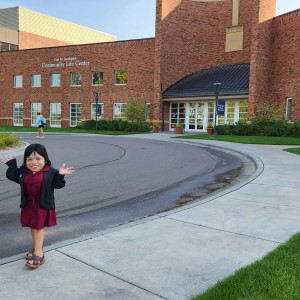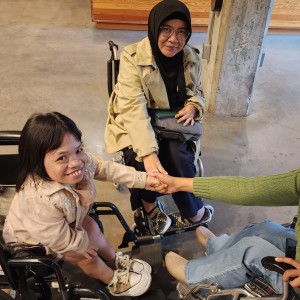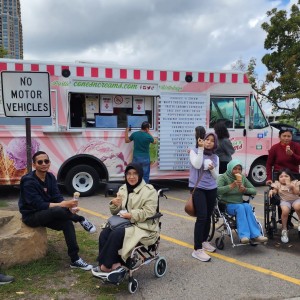Inclusive Education for Students with Disabilities: A Project for Indonesia
As this September the Bureau of Educational and Cultural Affairs highlights the importance of representation, Meridian was proud to program an International Visitor Leadership Program (IVLP) project for six disability advocates, academics, and government officials from Indonesia to examine how the United States is incorporating inclusive practices across educational spaces and institutions. Such a topical focus underscores the overarching goal that students with intellectual and physical disabilities must not only have access to high-quality education but should benefit from social and physical inclusion across classrooms and communities. This project endeavored to show how this aim is made a reality. Through meetings with public and private schools, NGOs, universities, local and federal government, and private organizations, participants engaged with a variety of stakeholders to observe various models of disability inclusion, and how it can be achieved with varying resources.
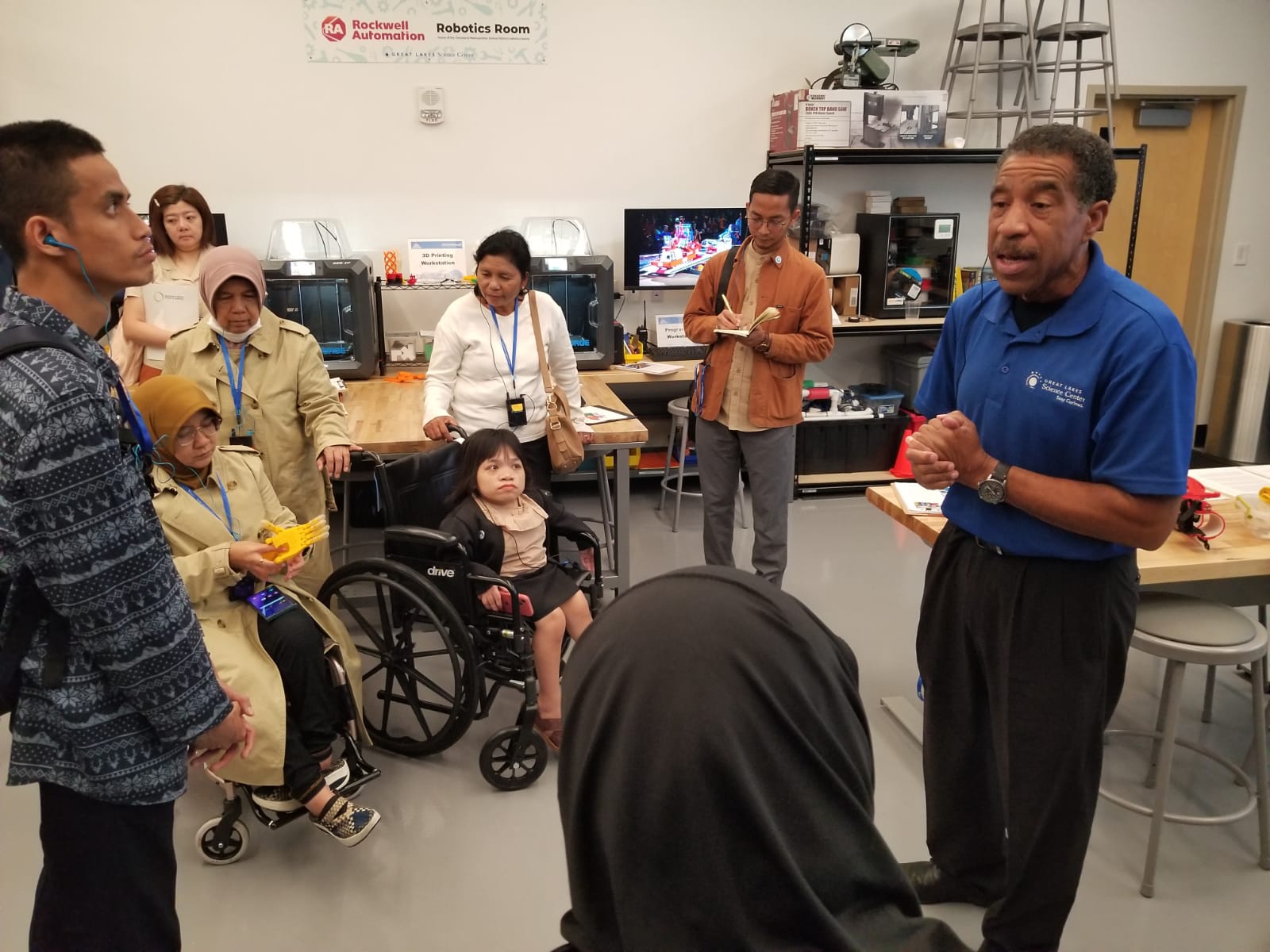
In Washington, DC, meetings sough to provide a foundational perspective on inclusive education issues, covering topics such as the federal system's impact on education, and the role of the Americans with Disabilities Act in influencing academic curricula and the design of school campuses. Visitors met with SchoolTalk, Inc. to hear an overview of the challenges and opportunities of inclusive education in the United States. They also met with the U.S. Department of Education to learn about the operations, services, and standards that are both provided to disabled students and applied across educational levels. A meeting with the U.S. Access Board covered their work in promoting accessibility design standards, while conversations with the National Center for Learning Disabilities centered on how to best serve school districts with resource constraints meet their inclusion goals. Critical to this project's design was highlighting how inclusive education is a multifaceted issue and requires cross-sector collaboration to be addressed.
"It's been very useful to get other points of view. I also have appreciated meeting new people with whom I can collaborate on formulating new policies, which is especially important in my role and position."
- Ms. Ratna PRABANDARI, Ministry of Education, Culture, Research and Technology
After Washington, the group departed for Cleveland, Ohio to see inclusion in action. At the Great Lakes Science Center visitors met with instructors and students who make mostly 3D-printed prosthetic limbs for children in need. They also met with Dancing Wheels, seeing how the famous dance company teaches dance to people who use wheelchairs and how they stage productions that incorporate wheelchair use. Cleveland State University’s Special Education Program and Cleveland Metropolitan School District spoke to how their special education teachers, curriculum, students, and more.
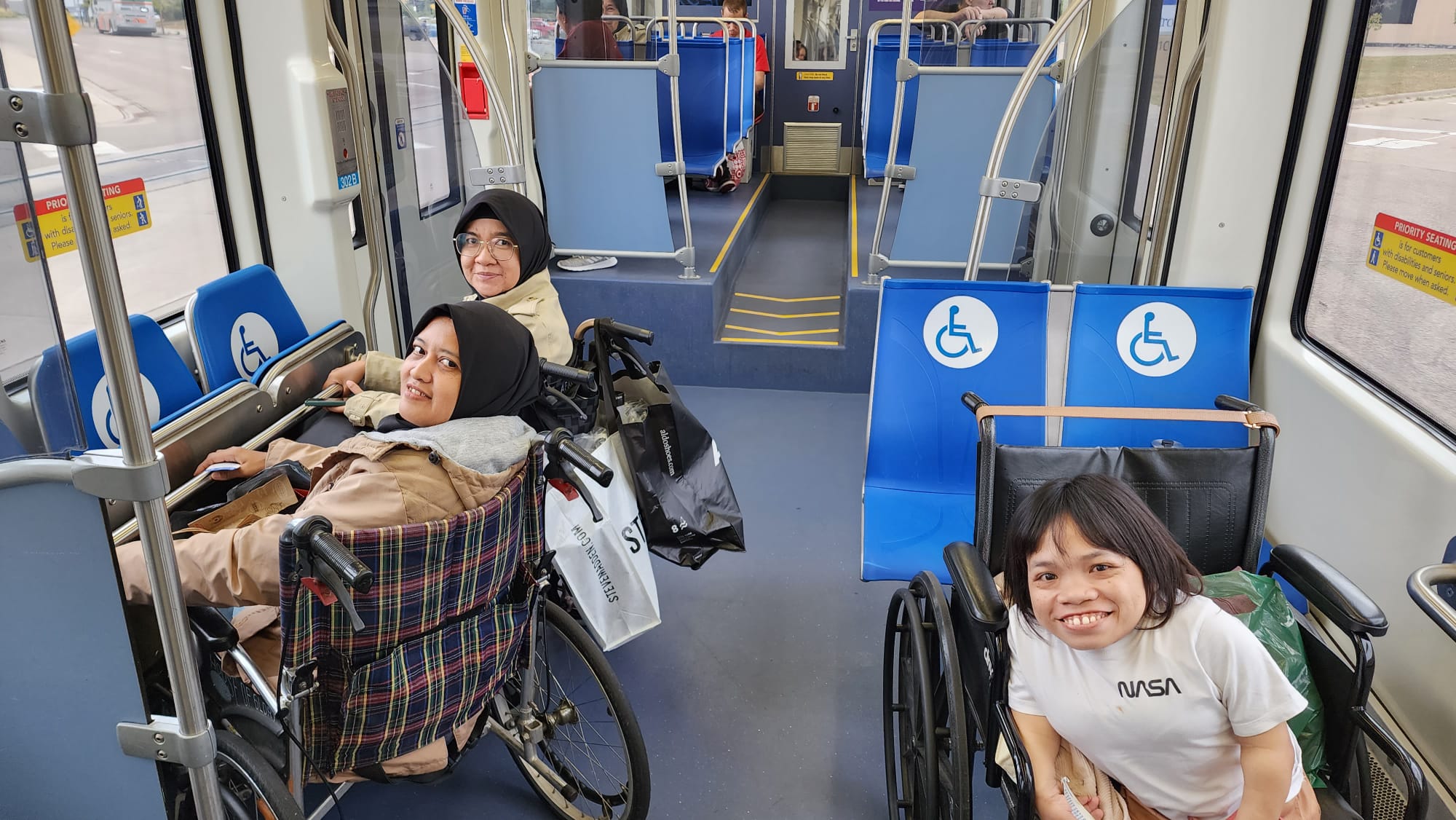
Time in Minneapolis, Minnesota offered the visitors holistic approaches to including people with disabilities in and outside of the classroom. At Bethel University visitors learned how the school’s BUILD Program helps disabled students study in classes with other university students and provides training for jobs and skills for independent living. Leaders from the Minnesota Department of Education exchanged with visitors how special education teachers are trained in Minnesota and in Indonesia. The group also had the opportunity of visiting with Minnesota State Senator Heather Gustafson, who encouraged the visitors to enter politics to give voice to the changes they sought. At the disabled peoples’ advocacy group Arc of Minnesota, a wide array of local experts spoke to influencing public policy, including through involving more families, women, and minorities in discussions of disability, and coalition building.
"I've gotten lots of new information on other disability best practices. I also have obtained new study material that will be very interesting for students and colleagues in my university."
- Bayu PAMUNGKAS, Lecturer, Yogyakarta State University
Finishing their project in Boulder, Colorado, visitors continued to exchange ideas and best practices on inclusion, accessibility, and more. The group met with Via Mobility Transportation to learn about their accessible vehicles and Colorado’s efforts to make transportation accessible to all, while the Audio Information Network Colorado shared about their mission to provide materials for the blind, visually impaired, and print disabled. More visits with special education instructors, disabilities advocates, and support services for housing for people with disabilities spoke to the holistic approach to providing a healthy environment to help students with disabilities prepare for the classroom, playground, and beyond.
"When first considering joining this [program], my first concern was on how to adjust policy in order to be able to help more disabled Indonesians to take part in school. I think the people I meet here will help me achieve that."
- Ms. Ratna PRABANDARI, Center for Education Financial Services, Ministry of Education, Culture, Research and Technology.
Project summary
| Inclusive Education for Students with Disabilities: A Project for Indonesia | |
|---|---|
| Number of Visitors: | 6 |
| Regions: | East Asia and Pacific |
| Countries: | Indonesia |
| Impact Areas: | Human and Civil Rights, Education |
| Program Areas: | Global Leadership |
